The Brutalist
 for strong sexual content, graphic nudity, rape, drug use and some language.
for strong sexual content, graphic nudity, rape, drug use and some language.
Check back later for review coming from contributor Jim O'Neill
| Moral Rating: | Very Offensive |
| Moviemaking Quality: |
|
| Primary Audience: | Adults |
| Genre: | Drama |
| Length: | 3 hr. 34 min. |
| Year of Release: | 2024 |
| USA Release: |
September 28, 2024 (festival) December 20, 2024 (limited release) DVD: March 25, 2025 |
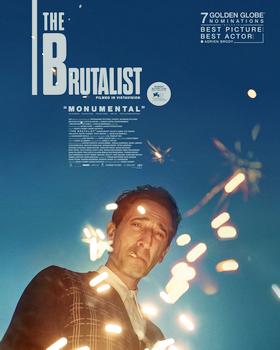

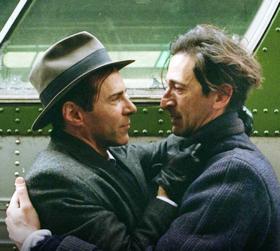
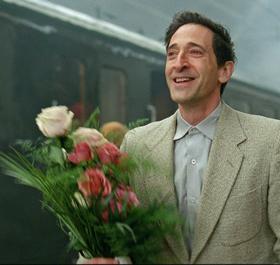
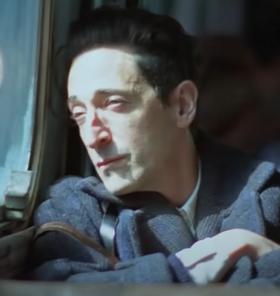
Setting: Post-War 1940s Europe, Philadephia and New York City
Socio-Political Message: “This is the way America really is,” unjust, unfair, and unequal — privileged, arrogant, wealthy class readily using the labor and creativity of immigrants, but treating them shamefully and never considering them as equals. Capitalism, Corporatism, Consumerism and Greed
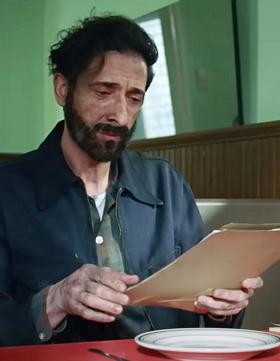
Protagonist: Jewish survivor of the nightmare Holocaust / Hungarian-Jewish, Bauhaus-trained architect emigrates to USA after being forcibly separated from his beloved wife and niece during World War II, now longing to bring them to join him
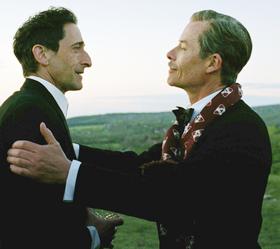
Being offered the opportunity to live “the American Dream” in “The Land of Opportunity”
Immigrant experiences—good and bad / Experiencing both new freedom and fear—exultant highs and gutting sorrows
Creativity and passion for the art and integrity of architecture versus disappointing compromise
Delays due one’s perfectionism
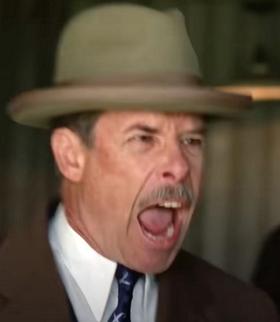
Vicious humiliations
Racism and anti-Semitism
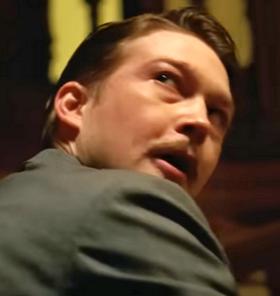
Moral corruption and depravity
Rape—male on male
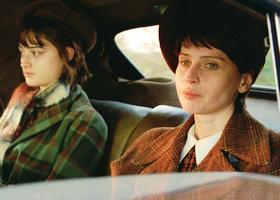
Wife with debilitating, painful osteoporosis
Niece mute due to severe war trauma and famine
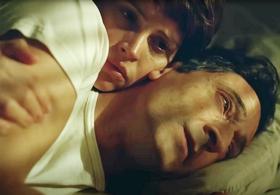
Wife who is supportive, but chafes at being shut out of husbands important decisions that affect them both
Heavy heroin use and addiction
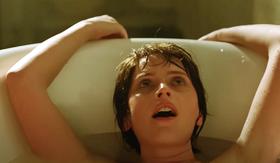
Very heavy and explicit sexual content and graphic nudity

Prostitution / Sexual immorality
Sexual lust outside of marriage—Why does God strongly warn us about it?
Is there a way to overcome illicit and excessive lust for sex?
| Featuring |
Adrien Brody … László Tóth Felicity Jones … Erzsébet Tóth Guy Pearce … Harrison Lee Van Buren Sr. Joe Alwyn … Harry Lee Raffey Cassidy … Zsófia Stacy Martin … Maggie Lee Isaach De Bankolé … Gordon Alessandro Nivola … Attila Emma Laird … Audrey Jonathan Hyde … Leslie Woodrow See all » |
| Director |
Brady Corbet |
| Producer |
Brookstreet Pictures [Canada] Kaplan Morrison See all » |
| Distributor |
“Show me a hero and I’ll write you a tragedy.” —F. Scott Fitzgerald
Brady Corbett’s second film, “The Brutalist,” is a grandiose Orson Welles-like endeavor, a stretch for a young filmmaker whose first film, “Vox Lux” was erratic but had a vision that I wanted to see more of in his future work. I had hopes for his latest movie and I was taken in by the high critical praise it is receiving, along with the seasonal awards it is piling up. So, I gave in to the hype (I never learn), and went to see the three-and-a-half-hour opus.
The masterpiece that so many critics have been cheering about eluded me. What I sat through was a very bad movie, one that fell apart in the first frame and never came together again.
The film opens with Hungarian-born Holocaust survivor, László Tóth’s (Adrien Brody) arrival on Ellis Island in the late 1940s. He emerges into the light of New York’s harbor from the below-water steerage section of an ocean liner. Corbet’s inversion, or perversion, of the “coming to America” scene in “The Godfather Part II” shows an upended image of the Statue of Liberty implying early on that America’s promise not only has a downside but represents an upside-down world.
Tóth’s first venture in his new home is a visit to a brothel, a scene that sets the stage for an uncaring, ungrounded and unsheltered world. The encounter is twisted and bizarre, a harbinger for all interactions, personal and commercial, that follow. Unconsummated, and taking place in a hallway instead of a room, the exchange is perplexing and jarring. The hero has gotten off the boat and found himself on dry land, but he is still at sea.
Tóth injures his nose while on his transatlantic journey, and control of the resulting pain becomes a personal and persistent demon. Yes, I get it, a broken nose hurts, but does it require constant intravenous morphine for relief? And how would one get a dose, let alone several, in the steerage section of a third-rate passenger ship? These dope fixes lead to a lifelong addiction with interludes of Brody undergoing withdrawal symptoms, seeking out the drug, hiding stashes behind sinks and having a dealer inject it into his arm, much the way Frank Sinatra was shot up in “The Man with the Golden Arm.”
The movie is divided into chapters, ones with pretentious names that evoke bold principles but have little to do with the contents of those plot divisions. After arriving in New York, Brody takes a bus to Philadelphia where his cousin, Atilla (Alessandro Nivola) takes him in and temporarily supports him. There is a tension between Tóth, Atilla and Atilla’s wife that sways between perverse attraction and unresolved neuroses. The suggestiveness of the slow dances between the three of them is more discomforting than endearing or sensual. The friendship, and the attraction, dries up quickly as does every other relationship in the film.
Corbet seems to be saying that dreams of happiness, peace and fidelity are impossible in a world that has too many opportunities and too few guardrails. Inside Corbet’s petri dish realm, all the usual baddies emerge: capitalism, corporatism, consumerism and greed. The Progressive salves of Socialism, Bohemianism and Elitism that Hollywood continues to embarrassingly bow to are danced around but never examined. Corbet’s is a vision like Bernardo Bertolucci’s in “1900,” one that melds the pioneer spirit with family discord, social violence and sexual perversity. Bertolucci, however, was a unique artist who, even when he made a hack film, provided us with glimpses of cinematic glory.
László, a renowned architect in his native Hungary but mostly unknown in America, and Atilla, a dealer in traditional home furniture, are hired by the family of a Philadelphia financier to build a modernist library inside a classical Doylestown, Pennsylvania mansion. The architectural blueprint may be plausible, but the story’s premise is not, and throughout the film, the script constantly struggles to fit square plot parts into round holes.
The relationship between patron and artist starts with mutual admiration, even awe, but quickly evolves into something sinister, dark and controlling. Guy Pearce plays financier Harrison Lee Van Buren Sr., perfectly parsing the humanitarian baron with the lurking-beneath-the-smile monster. He outshines Brody in every one of their scenes together, the latter mostly sulking and squirming under Pearce’s leering eye. Brody’s is a degrading, out-of-bounds performance, one full of tears, sweat, and mucous. It is more exhausting than exhaustive and lacks the pathos, mostly internal, that made his turn in “The Pianist” so moving.
Brody’s wife, Erzsébet (Felicity Jones), appears later in the film, and she is hardly the stabilizing force one hopes for. Subjected to unspecified atrocities under Nazi rule in Hungary, she is left with a severe case of osteoporosis and is confined to a wheelchair. She never stands until her one pivotal scene, a dramatic but dubious moment, disconnected from the film’s story arc and squeezed in not so much to move the story along as to stop it cold with a “truth spoken to power” grandstand. The marital reunion between László and Erzsébet does not stabilize their relationship. Like a smoldering infection, it turns to a kind of sepsis as they both succumb to perverse sex and drug injections, all of which is hard to watch.
Tóth’s pioneering work in Brutalist architecture is a reflection of his lonesome, dark-side-of-the-street persona, but his selfishness is aggrandized without being redeemed by self-awareness or eloquence, and certainly not by grace. He lacks the steady hand and the temperament one would expect in any accomplished architect, let alone a trailblazing one. Where is the noble resignation of Howard Roark in “The Fountainhead” played hauntingly by Gary Cooper or the dignity of Colonel Nicholson in “Bridge on the River Kwai” played with dented pride by Alec Guinness? Construction and destruction may go hand in hand or even be two faces of the same coin, but gaining the world at the expense of losing everything else is more travesty than tragedy.
Corbet sees victims and victimizers everywhere, as if power differentials are the basis of all human interaction. Rape, both homosexual and heterosexual, hang like ghouls over the lives of everyone, fitting for a film that begins in the gutter and stays there.
The only light that shines from above comes from the ceiling in the chapel of the building Tóth is constructing for Von Buren, a cross carved into the stone roof that lets in natural light. But that cross, like the Statue of Liberty, is visualized upside down. There is no sense of the supernatural in that light. Corbet takes a stab at both God and country, but he strangely shies away from examining the relationship, as well as the divide, between Judaism and Christianity, especially in post-war America. It’s a perplexing evasion especially for a storyteller who sets his film in the Pennsylvania suburbs, an area known for its Quaker roots.
There are multiple scenes of roadways lit by headlights of forging cars, trains rolling along tracks and clouds spreading across the sky building a sense of forward motion leaving what has passed in the dust. The proposition that a country is built on the God-given realization that all men are created equal is upended and allowed to fall to the ground. Whatever happened to the universal law that was written on each of our hearts? The truths we hold to be self-evident? Modernism has asked us to look at those principles differently, to see them according to our own wants, desires, and “love of darkness rather than light,” but it cannot deny those laws even if Corbet would have us do so.
The power of the mighty and the sensitivity of the artist have always clashed, and that may not be such a bad thing. Perhaps the studio big wigs should have exerted a bit more of that power on their over-sensitive and out-of-control director. In “The Brutalist,” Corbet has reached for the stars. Oscar Wilde referred to a gutter as not such a bad place because from there you at least get a good view of the stars. This film landed me in a gutter for almost four hours, and its cloudy skies blocked my view not just of the stars but of anything that I would look for or to in the sky.
The film ends on what I could not decide was a high one or a low one. Tosh is awarded a prize for his contributions to architecture at the Venice Biennale in the 1980s. The interlude is gratuitous and grossly out-of-place. A style of architecture known for its stripped-down fundamentals is highlighted in a city that shimmers with Renaissance and Baroque beauty. I was expecting a sideways reference to the city’s sinking future, but he stayed focused on his own country’s decline. He should focus on the film industry’s instead. For that demise, “The Brutalist” could be Exhibit A.
- Nudity: Very Heavy to Extreme (full frontal female nudity and almost full male)
- Sex: Very Heavy to Extreme (6 scenes—graphic and of disturbing varieties)
- Drugs/Alcohol: Very Heavy— Frequent displays of heroin addiction / Marijuana smoking / Frequent alcohol drinking, some heavy / Drunkeness / Frequent smoking / Painkillers
- Violence: Heavy— including a rape, and an implied rape
- Profane language: Heavy— J*sus (1), Chr*st (2), G*d d*mn (6), G*d (4), D*mn, H*ll
- Vulgar/Crude language: Heavy— F-words (7), S-word, B*tch, B*stard, Derogatory terms for Blacks and Italians, Numerous insulting names and phrases
- Wokeism: Moderately Heavy
- Occult: None
See list of Relevant Issues—questions-and-answers.
A more uplifting story involving Judaism, involving Light instead of Darkness…


PLEASE share your observations and insights to be posted here.
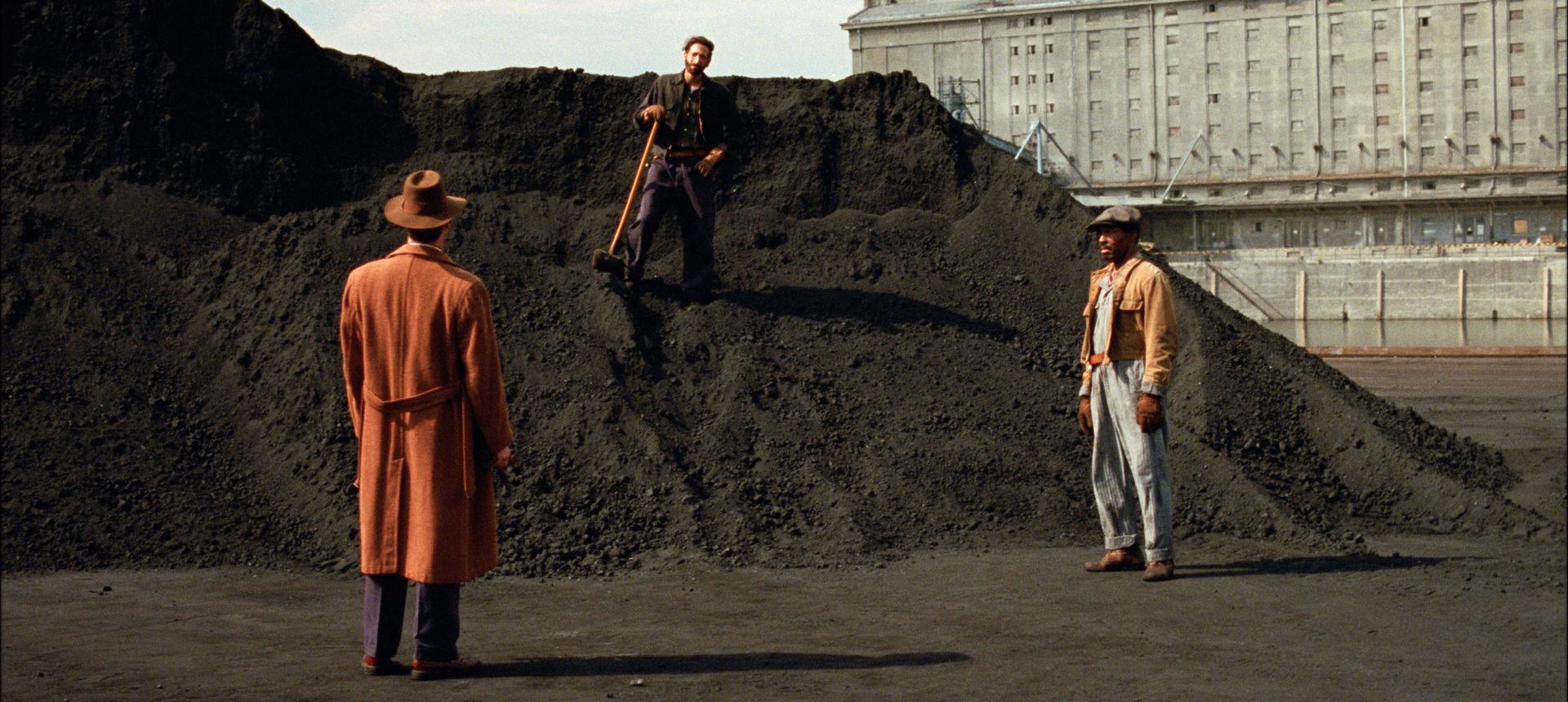

My Ratings: Moral rating: Very Offensive / Moviemaking quality: 3½